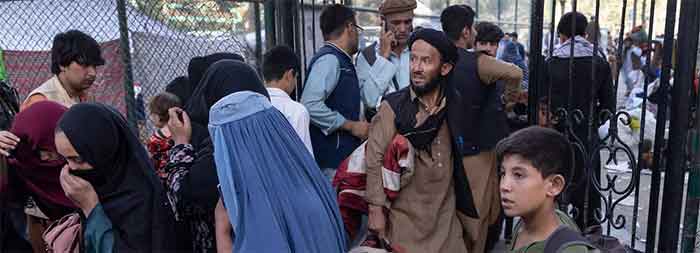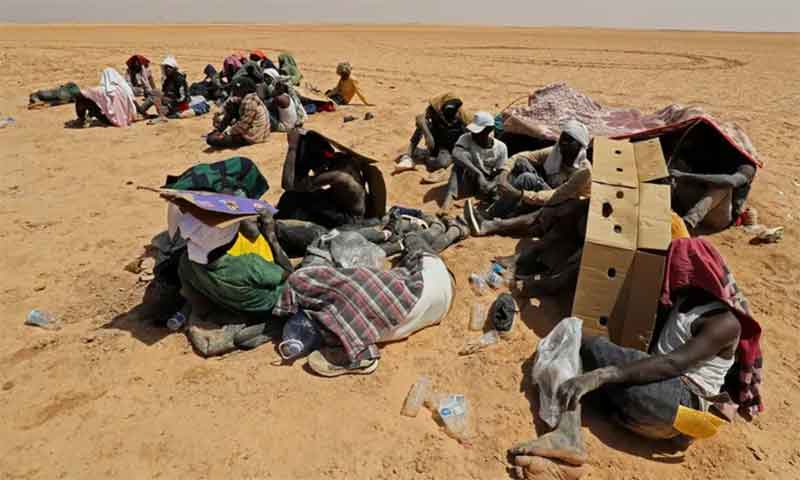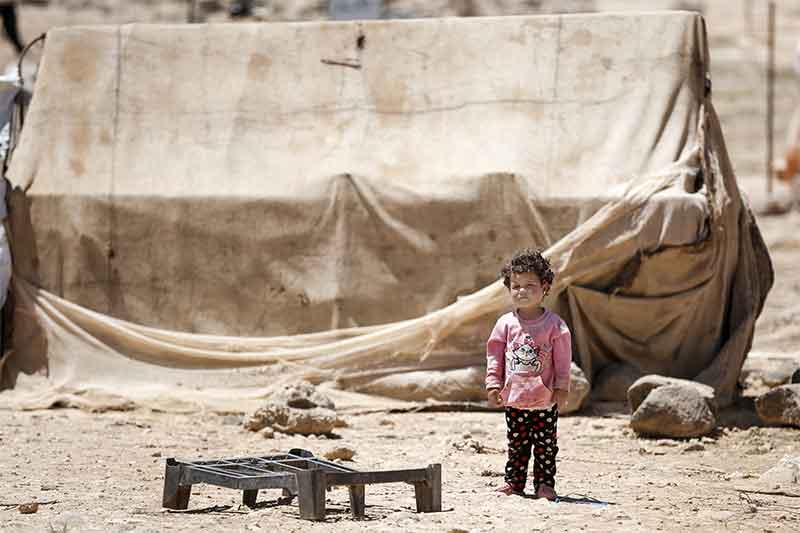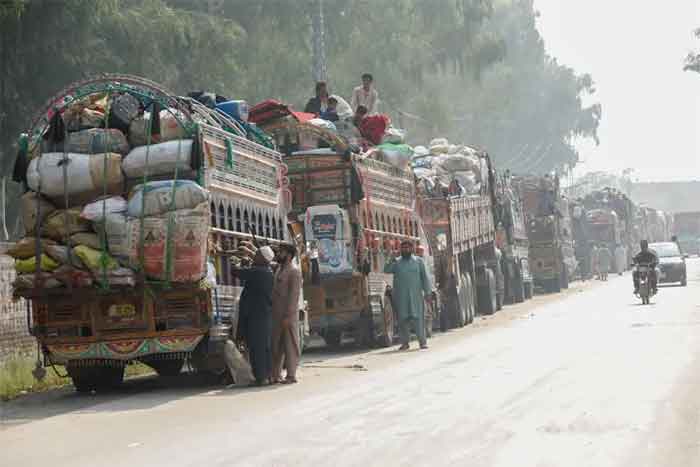
As York prepares to welcome Afghan refugees, housing is becoming a critical issue. It is not that York lacks rental housing, but rather that it lacks affordable housing, a particular problem for people who will likely have left their country with nothing. This article seeks to offer an alternative solution and to investigate ways and means of welcoming more refugees to York.
Housing crisis
It is widely acknowledged that the United Kingdom is experiencing a housing crisis: in recent decades, the cost of buying a home has increased faster than salaries, pricing many people out of the market.
Low-deposit mortgages are ineffective in many parts of the country because potential homeowners cannot afford the high monthly payments on the mortgages they will require. For many, therefore, buying a house, if achievable at all, still means a long period of saving for substantial down payments.
Things are made significantly more difficult by high private sector rents and a significant proportion of renters require state assistance to pay their monthly housing expenses. As affordable social housing has grown rarer, many families have little alternative but to rent privately, frequently at a higher cost than a mortgage.
Failure to create enough affordable housing means that people without permanent housing struggle to find work, parents struggle to keep their children in the same school, and mental health suffers as a result of anxiety.
The housing crisis in York
York has been identified as a national hotspot for failing to offer affordable housing. The development of social housing has simply not kept pace with increasing demand and waiting times can be measured in decades.
York needs around 205 new affordable houses every year, but only about 77 have been created in recent years — and approximately 58 housing association properties are lost each year to the right to buy. This leaves 19 new houses available to those on the housing waiting list or families interested in purchasing through a shared ownership programme. The result is that the number of individuals waiting for a house on the council’s housing list rose to about 1,800 in July 2021.
In this difficult housing situation, the city of York council leadership is planning to place Afghan refugees in privately rented property, but this may make things difficult for them from the start.
Housing as a human right
The housing situation in the UK was not always this bad. According to official figures, over a third of dwellings in the United Kingdom in the early 1970s were cheap social housing supplied by local authorities.
It is the so-called “right to buy” that is at the root of the present housing issue. The policy, which allowed council residents to purchase their houses at a discounted price, had existed for years on a small scale but the Thatcher administration’s generous and enthusiastically embraced sell-off in the 1980s led to a decrease in funds available to municipalities and therefore in the number of replacement dwellings that could be built.
Concerning the integration of refugees and asylum seekers, housing is a crucial issue with the right to adequate housing enshrined in international human rights law. This can be traced back to 1948, when the world community unanimously adopted the Universal Declaration of Human Rights. Since then, the right to adequate housing has been repeatedly reaffirmed, further defined and elaborated.
When Syrian refugees were first resettled in York in 2016, it was decided that they would be housed in privately rented accommodation. While this did not mean they were not allowed to go onto the social housing list later when they settled into the city, the waiting times for social housing imply that few will ever access it. The fact that refugees in the UK are entitled to social housing begs the question of why different rules and approaches were used for Syrian refugees than for Afghan refugees. This could be a form of discrimination or simply demonstrate that the UK lacks a unified set of well-thought-out and planned refugee policies and laws that are guided by international human rights conventions and treaties.
The same approach appears likely to be taken with housing Afghan refugees who come to live in the city – people with few resources expected somehow to cope with expensive private sector rents. The solution is not straightforward: the local governments must begin to view housing as a human right rather than a commodity and, begin focusing on that, should adopt a completely different approach. In housing refugees, the government should work closely with private landlords and the local community to find long term affordable accommodation and there needs to be direct funding from the government for at least the first 3 years so as not to put the host community under pressure.
The past influx of Syrian refugees and the continued inflow of Afghan refugees provide both an opportunity and a challenge for government and policymakers to change housing rules and regulations and start a social housing building revolution. But in the past we have seen that Nick Clegg said that the Conservative party refused to build social housing because it would ‘create Labour voters’, but the question remains whether the political party in power will be willing to build social housing now or they will fear that these refugees might become a supporter of a particular political party.
Adequate and appropriate housing as a tool for better integration
All refugees have one thing in common: they have lost their homes and are looking for a new one. In this case, it is in York. Housing plays a crucial role in an individual’s health and wellbeing, and often determines which school their children will attend, the crime rate, employment opportunities and many other factors to which the individual will be exposed. The provision of adequate, affordable housing in our area is therefore crucial.
Another important issue is the choice of appropriate neighbourhoods in which to house refugees. If they are placed in areas where they will face hostility and racism, this will affect their health and wellbeing. Local housing policies and guidelines need to keep such factors in mind. Specific refugee-focused housing policies need to be developed and local councillors, MPs and charity workers trained specifically around these issues. Remedies need to be in place to address problems that may arise and to provide rehousing if required.
Welcoming host community
The primary need in terms of housing refugees is placing them in neighbourhoods where there are dedicated people committed to welcoming them. Such people could come together to befriend and provide support to the refugees, both in the short and long term. By doing this, refugees will feel welcome and better supported and every aspect of their lives may be improved. In addition, the local community will benefit in the long term. To achieve this, the government should be prepared to help local people in local community organisations in their areas who will be properly funded and trained and who will play a key part in welcoming refugees. It is very apparent from the response to the Syrian and Afghan refugee crisis that there is no lack of people in York who are ready to help refugees by providing finance, practical support and expertise. What is needed is help for them to be trained, organised and funded that they can continue to fulfil their roles now and when the next crisis arises.
Following this model would mean that when a refugee family is resettled, they would be assigned a caseworker from one of the two local charities, Refugee Action York or York City of Sanctuary. Refugees would then receive a visit from their caseworker two or three times a week, as well as having daily contact with organised groups of community friends from their neighbourhood, enabling them to access advice and local expertise to solve any problems.
This level of contact will not only help build bonds and relationships but also increase the opportunities for refugee family members to learn English, practise their conversational skills in relaxed settings and build up their confidence, all of which will greatly enhance community cohesion.
But for plans of this kind to work, local charities need to be adequately funded by the Home Office so that they can work together with the city council and local community to form a local environment into which refugees will be welcomed.
Ensuring successful integration of refugees
Adequate and affordable housing and strong community involvement are key components of success in welcoming refugees. In both cases, we have work to do.
I strongly hope that the city of York council and political leadership keep in mind that York is the UK’s first human rights city and take the opportunity to create the conditions whereby we can support people safely and successfully restart their lives. This might create an opportunity to rethink and challenge the different tier system of asylum and refugee status and different treatment of refugees and asylum seekers that are in place.
William Gomes is a human-rights activist and freelance journalist.
















































